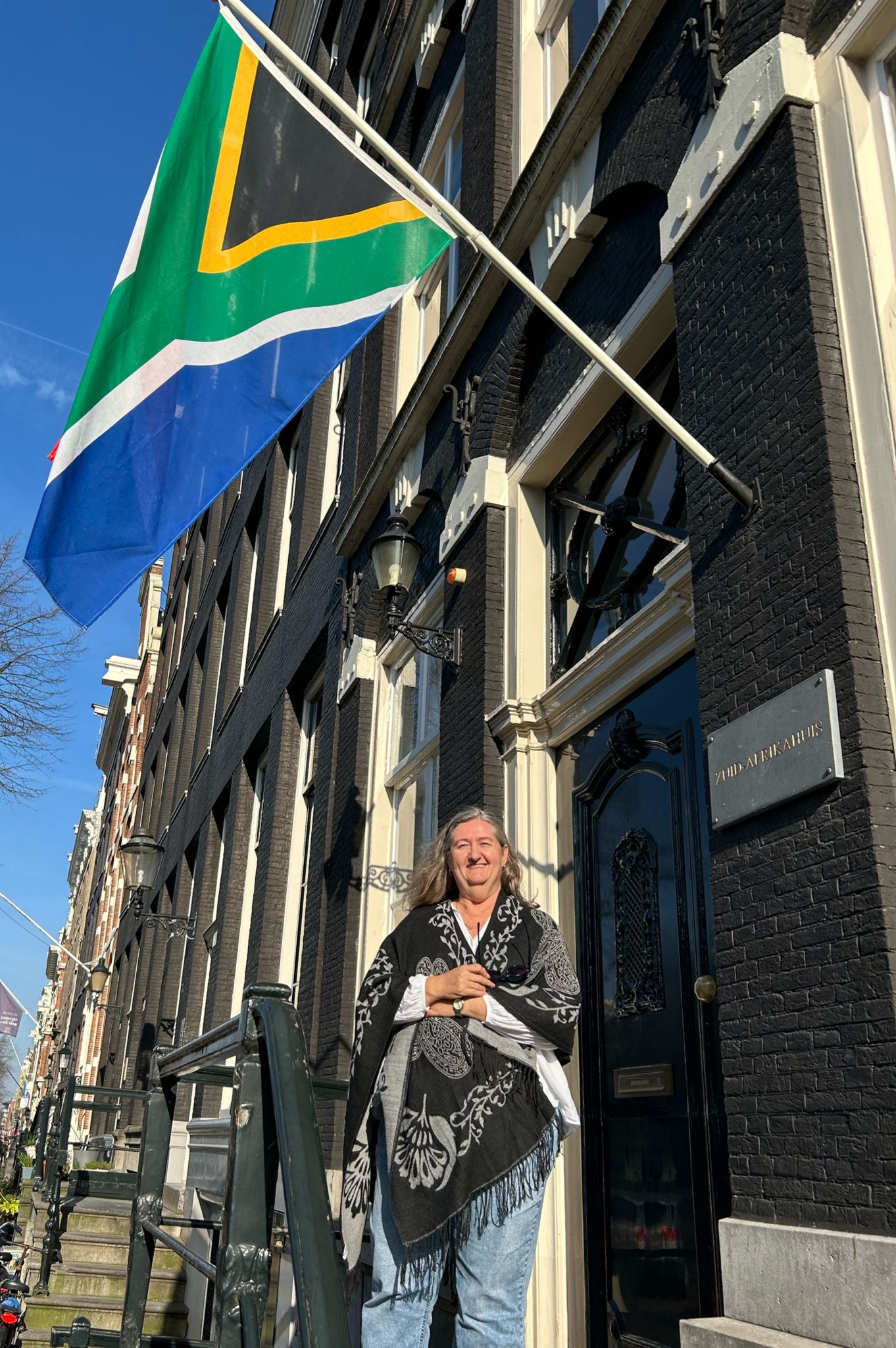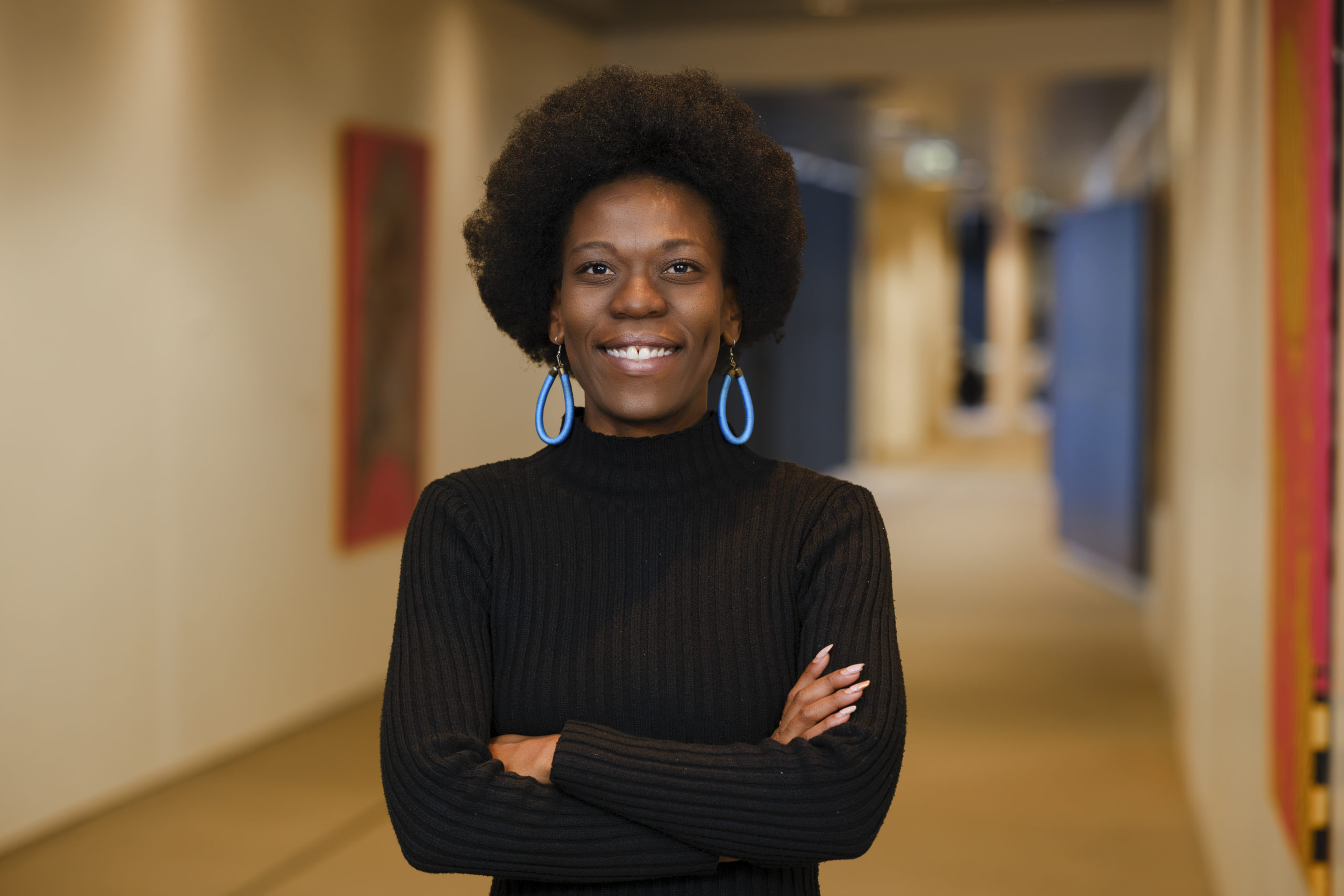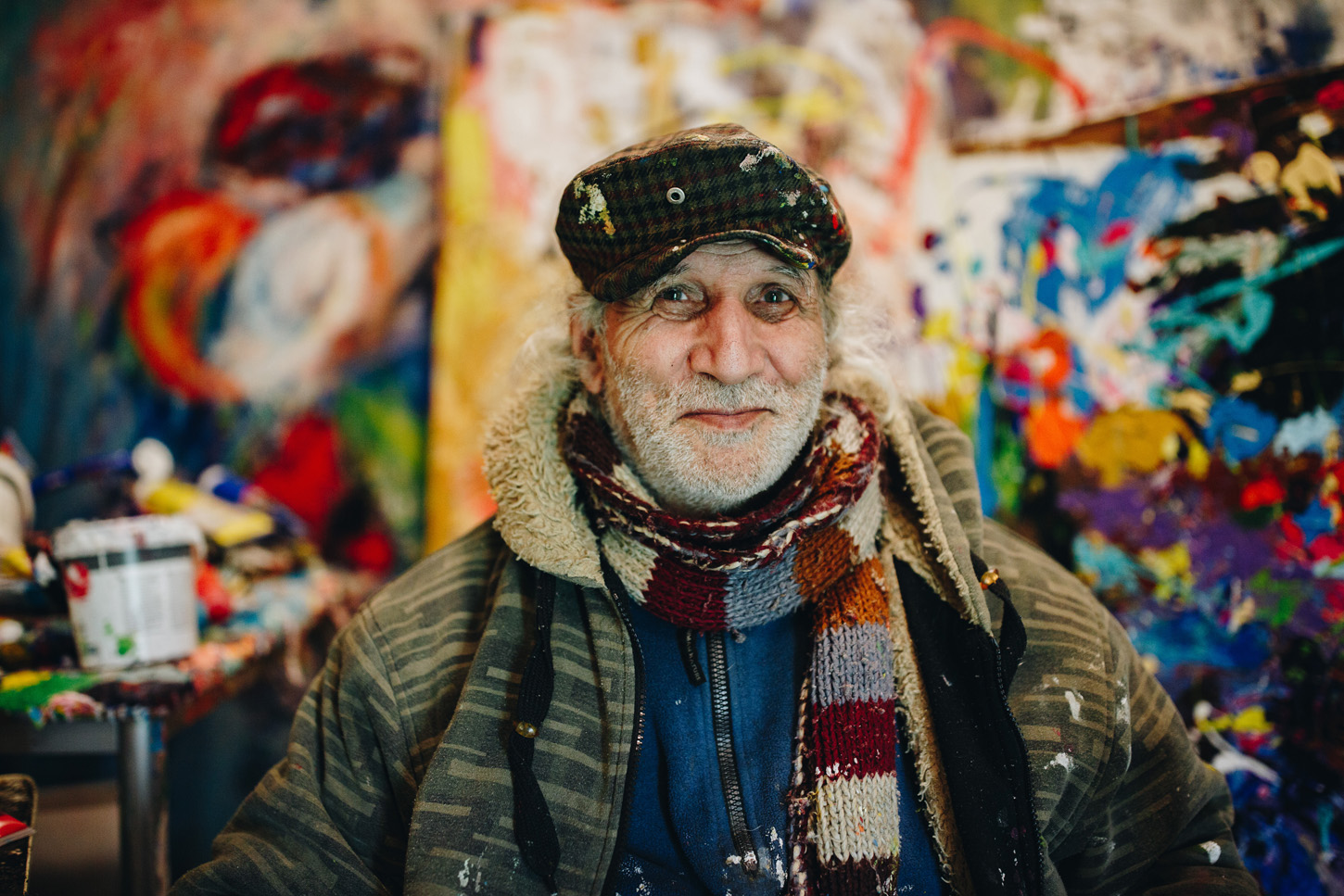On the 21th of March the third episode took place from our bimonthly program ‘Footnotes – Intersectional Strategies in (South) Africa’, with this month’s topic: ‘Strike a Rock’ film screening and discussion.
Did you happen to miss the episode? No need to worry! You can watch all the episodes on our YouTube channel.
Episode 3 Strike a Rock film screening and discussion
Our bi-monthly interdisciplinary program on voices effecting change in artwork, books, films and other media. We’ll be talking about black feminism, queerness, violence, mermaids, struggle, post memory, heritage, myth busting, empowerment, and image making. In Footnotes we’ll connect countries and cultures, makers and theorists from interdisciplinary perspectives.
This episode focuses on the documentary film, Strike a Rock and women’s activism in South Africa in the aftermath of the 2012 Marikana Massacre, and in mining communities in the Zambian Copperbelt. Bringing perspectives from cultural studies, anthropology and visual studies, Nomusa Makhubu, Patience Mususa and Helene Strauss speak with Ksenia Robbe and Kylie Thomas about the enduring effects of the first massacre to take place in South Africa after the end of apartheid.“Despite the international attention, inquiry and mass-activism that followed the massacre, living conditions for the Marikana community have worsened. There has been no accountability. This is what drew me so powerfully to the story of Thumeka and Primrose, two grandmothers who were compelled by the tragedy they witnessed to take on leadership roles, exercising their agency and power. They force us to recognise that the story of Marikana is not yet over.” – Aliki Saragas, director of Strike a Rock
About the film
After a massacre shakes the foundations of their poverty stricken mining community, Marikana, two grandmothers rise up out of their homes and lead their community in a historic fight against seemingly insurmountable odds for justice and dignity. In an intimate story where the personal becomes political through fighting on-the-ground to the corridors of power, how will these women take on Goliath enemies and make their voices heard?
Watch the film here
(available for a short period of time leading up to the event)
About the speakers
Helene Strauss teaches in the Department of English at the University of the Free State, South Africa. Her research spans topics such as Southern African literature and audio-visual culture; feminist and queer aesthetic activisms; protest cultures; materialisms old and new; mining; the climate crisis; and documentary film. Her recent major publications include Wayward Feeling: Audio-visual Culture and Aesthetic Activism in Post-Rainbow South Africa (University of Toronto Press, 2022) and Contemporary African Mediations of Affect and Access (Routledge, 2017, co-edited by Jessie Forsyth and Sarah Olutola). Her current research includes a long-term collaborative project on the decolonial work of reckoning, repairing, and reworlding called for by the planetary climate crisis.
Nomusa Makhubu is an associate professor in Art History and deputy dean of transformation in Humanities at the University of Cape Town. She was the recipient of the ABSA L’Atelier Gerard Sekoto Award in 2006 and the Prix du Studio National des Arts Contemporain, Le Fresnoy in 2014. She received the American Council of Learned Societies (ACLS) African Humanities Program fellowship award and was an African Studies Association (ASA) Presidential fellow in 2016. In 2017, she was also a UCT-Harvard Mandela fellow at the Hutchins Centre for African and African American Research, Harvard University. Recognising the need for mentorship and collaborative practice in socially responsive arts, she founded Creative Knowledge Resources (CKR). She co-co-curated with Nkule Mabaso the international exhibition, Fantastic, in 2015 and The stronger we become in 2019 at the 58th Venice Biennale in Italy.
Patience Mususa is an anthropologist based in Uppsala, Sweden where she works as Senior Researcher at the Nordic Africa Institute. Her research focusses on mining and urbanisation, covering issues of inequality and social change. Her recent book There Used to Be Order: Life on the Copperbelt after the privatisation of the Zambia Consolidated Copper Mines published with Michigan University Press explores the experience of middle-income decline in a mining community amid an economic crisis compounded by the retreat of state welfare. Patience has previously worked in architectural practice in Zambia and taught at the University of Cape Town and the Copperbelt University in anthropology and architecture respectively.
Ksenia Robbe is a senior lecturer in European Culture and Literature at the University of Groningen. Her work interfaces research in postcolonial/postsocialist entanglements, memory and temporality, and gender and feminism. She writes about contemporary Russian, Eastern European and Southern African cultural production. Her current research engages with memories of the 1980-90s ‘transitions’ in Russian and South African literature and film.
Kylie Thomas is a Senior Researcher at the NIOD Institute for War, Holocaust and Genocide Studies in Amsterdam. She is the author of Impossible Mourning: HIV/AIDS and Visuality after apartheid (Wits University Press & Bucknell University Press, 2014) and co-editor of Photography in and out of Africa: Iterations with Difference (Routledge, 2016) and Women and Photography in Africa: Creative Practices and Feminist Challenges (Routledge, 2020). She writes about photography, visual activism, feminist, queer and anti-racist movements, resistance and protest, and South Africa during and after apartheid.
About the series
Intersectionality has, in recent years, rapidly grown into a buzzword in cultural, academic and political debates across the world due to the ongoing need to foreground a much wider array of voices than was formerly the case. Voices that can speak to the often troubling ways in which the various intersections of race, gender, sexual or cultural inequalities in people’s lives wreak havoc for some, but not for others. As Desiree Lewis and Gabeda Baderoon argue in their introduction to Surfacing: On Being Black and Feminist in South Africa, mapping these interconnected power relations, so that they can be made visible and addressed, is no easy task. Especially not in an “age of advanced capitalized globalization”(Bogic qtd in Lewis and Baderoon), where some of the power structures in place have become so large and overbearing (like the imbrications of race and gender with market mechanisms), that situated perspectives tend to be drowned out by the boom of so called progress.
It all started with And Wrote My Story Anyway : Black South African Women’s Novels as Feminism, Barbara Boswell’s book that Wits University Press published in 2020. The topics discussed in this book deserve more than a book review. Black feminism, and many other subjects on the broad grid of intersectionality deserve their own airing time. It was not hard to find inspired other academics and cultural producers to join the bandwagon in this series. We’re looking forward to create fascinating episodes together with (South) African makers and theorists. Follow our website and YouTube channel, to stay updated on the coming topics and guests in our new series!
Footnotes – Intersectional Strategies in (South) Africa, is a bi-monthly online program. To make the conversations accessible to people from multiple lingual backgrounds, this series will be produced in English.
This event is supported by The Groningen Research Institute for the Study of Culture, University of Groningen; The Netherlands Institute for War, Holocaust and Genocide Studies; and Zuid-Afrikahuis, Amsterdam.


 23 maart 2022
23 maart 2022

